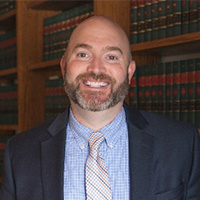 Eldred Juvenile Law Lawyers, New York
Eldred Juvenile Law Lawyers, New York
Sponsored Law Firm
-
 x
x

Click For More Info:
-
Cohen & Bernstein, L.L.C.
1360 Clifton Ave #309 Clifton, NJ 07012» view mapCriminal Defense We’re In this Together!
We work hand in hand with our clients to ensure all of your questions are answered and progress through your legal issue is seamless.
800-978-7341
Not enough matches for Eldred Juvenile Law lawyer.
Below are all Eldred Criminal lawyers.
Sponsored Lawyers
1-2 of 2 matches
Criminal, Wills & Probate, Employee Rights, Banking & Finance
With experience serving the public as an Assistant District Attorney, prosecuting minor traffic infractions and serious felony offenses, as public defender, providing legal representation to defendants with respect to both misdemeanor and felony accusations, as attorney for both petitioners, respondents, as well as an attorney for the child(ren), in Family Court and before local child and spousal support magistrates, and as a civil attorney representing clients in various forms of civil litigation, I am proud to announce that I have established my own office in Monticello, New York, dedicated to providing quality legal representation to the community I have been serving since 2006. Whether you are facing a traffic infraction, a criminal charge, or another legal issue, I am committed to providing you with quality representation that is accessible to you, especially in these times of economic difficulty. Please do not hesitate to contact us for a free consultation and to discuss your legal needs.
(more)Criminal, DUI-DWI, Traffic, Divorce, Wills & Probate
Any unwanted contact with the police can be scary....even being stopped for a simple traffic offense can be stressful and scary. Actually being arrested is something that most people have never experienced. But, it can happen to anyone. The truth is that anyone can be arrested and many people are arrested for crimes they didn't commit.. A mistaken identification, a misunderstanding or dispute with the police or another party, even simply being in the wrong place at the wrong time can lead to being taken into custody by the police and charged with a criminal offense. Being arrested can be one of the scariest moments in anyone's life. Suddenly your liberty is taken away and you may face the prospect of months or years of incarceration. The whole criminal adjudication process is both intimidating and confusing. Dealing with the power of the State to arrest and prosecute you isn't something that anyone should try to deal with on their own. More important than any other factor, who you retain as a lawyer to defend you can determine how likely you are to have your case fairly and completely adjudicated. Asserting and protecting all of the rights that our constitution guarantees you is the job of your attorney (for more information on your rights click here). Choosing an attorney who will aggressively assert your rights, listen to you and make sure that all the facts associated with the case are investigated is critical to minimizing the risk you will be convicted of an offense. Glenn Magnell is available to provide energetic, knowledgeable and professional legal representation regarding arrests or tickets related to speeding and traffic violations, DWI / DUI, or misdemeanors and felonies throughout the mid-Hudson Valley area, including Orange County, Ulster County, Putnam County, Dutchess County, Sullivan County and Rockland County. .
(more)


 Lindsay Bernstein Clifton, NJ
Lindsay Bernstein Clifton, NJ Practice AreasExpertise
Practice AreasExpertise


